20% off £35
Senior Multivitamins
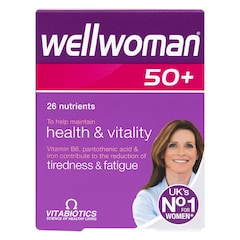
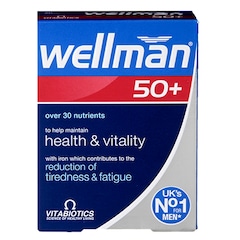
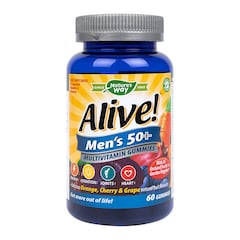
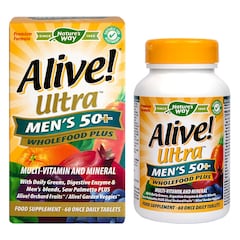
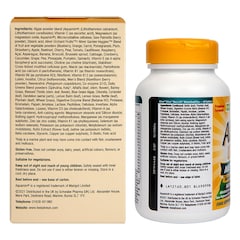
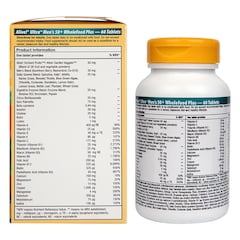
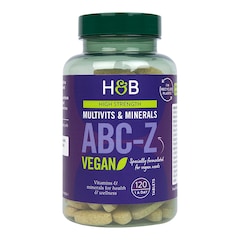
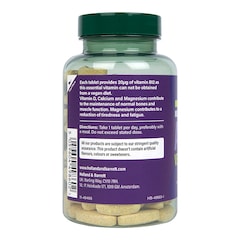
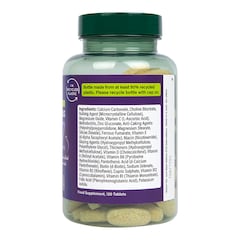
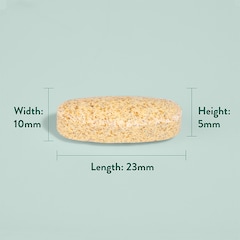
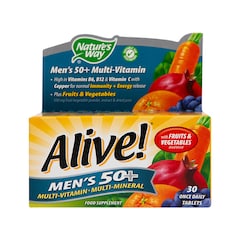
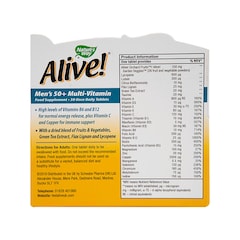
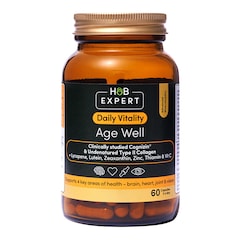
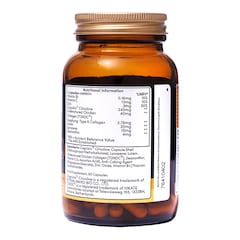
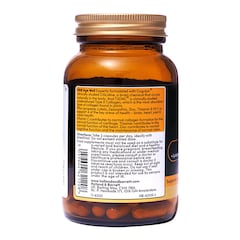
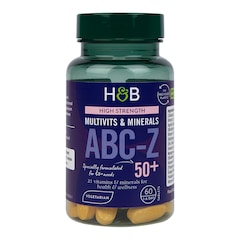
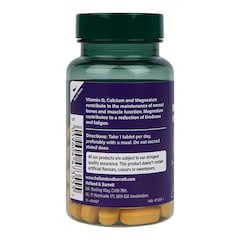
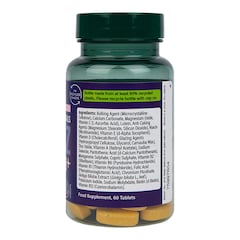
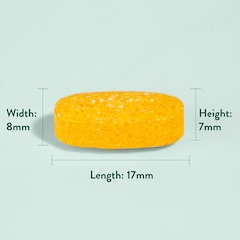
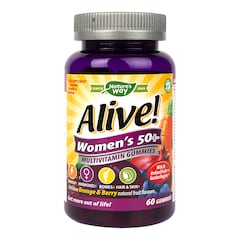
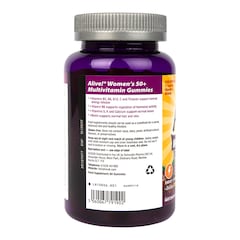
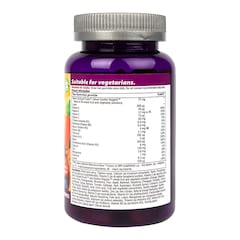
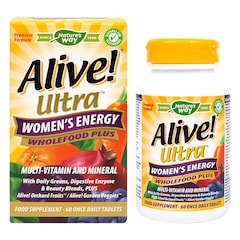
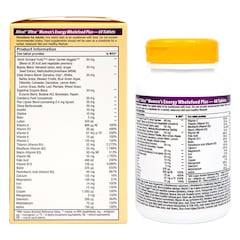
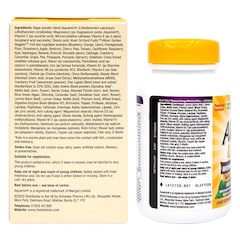
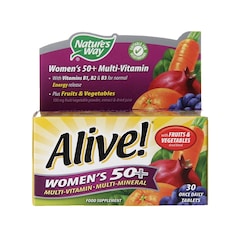
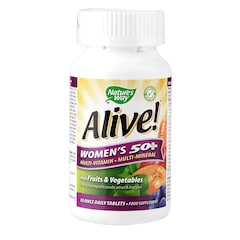
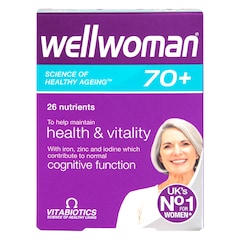
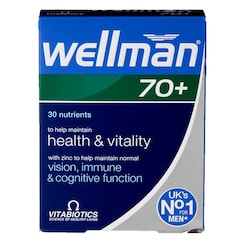
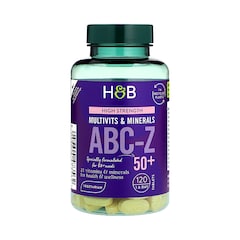
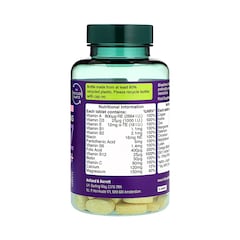
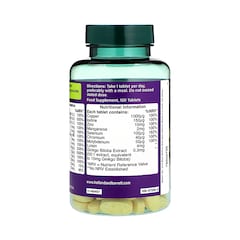
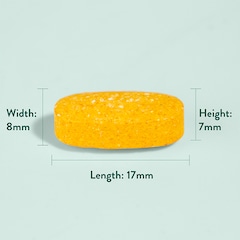
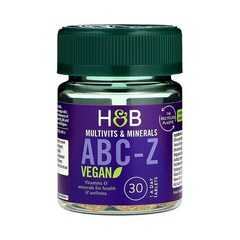
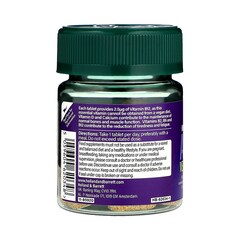
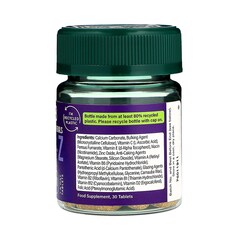
Our nutritional needs change as we age. Many people become less physically active in their fifties through to their eighties, though they, by no means, slow down in other areas of life.
Once we reach our fifties, we tend to need food with higher concentrations of nutrients in smaller amounts, as our energy requirements decrease and the basal metabolic rate also declines.
But we still need all the other benefits a healthy and balanced diet can provide.
Both sexes also see a shift in lean body tissue (muscle) to higher amounts of fat tissue in the body.
The way nutrients are digested, absorbed, used, and excreted also changes with age. For example, vitamin B12 absorption decreases the older you get.
Interestingly, the way you detect thirst also changes as you age. It can therefore become important to drink before you are thirsty, and ideally to carry a water bottle around and to drink with every meal.
Of course, other more individual factors can also have an impact on your nutritional needs.
Income, one’s social life, and one’s dental situation can also play a role in deciding which foods are more accessible and common in one’s life.
What vitamins do seniors need most?
The skin’s ability to synthesise vitamin D subsides with age, so older people can often benefit with taking a supplement containing around 10 micrograms daily.
Eating oily fish (such as tuna or sardines) and fortified cereal can also help.
To help maintain bone health, calcium is important, and fibre is important for supporting digestion and regular bowel movements.
Getting enough potassium while also limiting salt can help maintain a normal blood pressure.
And as throughout life, but even more so as you age, it is important to avoid saturated and trans fats, and focus on the types of fats found in nuts, seeds, vegetable oils, fish, and avocados.
The different needs of senior men and women
As they age, older men tend to need a little less of certain food groups, such as proteins like lean meats, eggs, tofu and nuts.
It also becomes even more important to watch junk food consumption – foods such as burgers, biscuits, fried food, and cordials, as it becomes even easier to gain weight.
Once men reach their seventies, they need less grains and slightly calcium.
Women (like men, but to a larger extent) absorb less calcium and may also start to struggle to tolerate dairy as they age.
If this is you, you can turn to dark leafy greens and orange juice, and you can also consider supplements.
Women may sit more and exercise less as they age, which can compound sarcopenia – the loss of muscle mass.
Eating protein therefore becomes important in helping to reduce the impact of that muscle wasting.
Eggs, nuts, seeds, beans, soy, and quinoa are great options for older women who are vegetarian, for instance, and again, supplements can also help.
Ageing can also see women struggling to absorb as many nutrients from food. One of those is vitamin B12, which is important for formation of normal blood cells and nervous system function.
The recommended intake of vitamin B12 per day for women over 50 is 2.4 micrograms. This vitamin is also found in things like eggs and cereals, but you can consult a doctor or expert to see if additional supplements are indicated.
What sorts of multivitamins are there for men and women over 50?
We stock a range of multivitamins that are specially formulated for men and women in different age groups.
For example, we have Vitabiotics Wellman 70+ which includes zinc to help older men maintain their vision, and immune and cognitive functions.
There are also another 30 nutrients and special ingredients.
Just take one tablet a day with your main meal, and be sure to swallow it with a drink rather than chewing.
On the other hand, we have Vitabiotics Wellwoman 50+ which contains B6, iron, and pantothenic acid specifically designed to help reduce tiredness and fatigue in older women.
This product also contains zinc, vitamin C, and vitamins B6 and B12 to help support cognitive function and eye health.
As with the men’s supplement, this should be taken once a day with the main meal.
Our nutritional needs change as we age. Many people become less physically active in their fifties through to their eighties, though they, by no means, slow down in other areas of life.
Once we reach our fifties, we tend to need food with higher concentrations of nutrients in smaller amounts, as our energy requirements decrease and the basal metabolic rate also declines.
But we still need all the other benefits a healthy and balanced diet can provide.
Both sexes also see a shift in lean body tissue (muscle) to higher amounts of fat tissue in the body.
The way nutrients are digested, absorbed, used, and excreted also changes with age. For example, vitamin B12 absorption decreases the older you get.
Interestingly, the way you detect thirst also changes as you age. It can therefore become important to drink before you are thirsty, and ideally to carry a water bottle around and to drink with every meal.
Of course, other more individual factors can also have an impact on your nutritional needs.
Income, one’s social life, and one’s dental situation can also play a role in deciding which foods are more accessible and common in one’s life.
What vitamins do seniors need most?
The skin’s ability to synthesise vitamin D subsides with age, so older people can often benefit with taking a supplement containing around 10 micrograms daily.
Eating oily fish (such as tuna or sardines) and fortified cereal can also help.
To help maintain bone health, calcium is important, and fibre is important for supporting digestion and regular bowel movements.
Getting enough potassium while also limiting salt can help maintain a normal blood pressure.
And as throughout life, but even more so as you age, it is important to avoid saturated and trans fats, and focus on the types of fats found in nuts, seeds, vegetable oils, fish, and avocados.
The different needs of senior men and women
As they age, older men tend to need a little less of certain food groups, such as proteins like lean meats, eggs, tofu and nuts.
It also becomes even more important to watch junk food consumption – foods such as burgers, biscuits, fried food, and cordials, as it becomes even easier to gain weight.
Once men reach their seventies, they need less grains and slightly calcium.
Women (like men, but to a larger extent) absorb less calcium and may also start to struggle to tolerate dairy as they age.
If this is you, you can turn to dark leafy greens and orange juice, and you can also consider supplements.
Women may sit more and exercise less as they age, which can compound sarcopenia – the loss of muscle mass.
Eating protein therefore becomes important in helping to reduce the impact of that muscle wasting.
Eggs, nuts, seeds, beans, soy, and quinoa are great options for older women who are vegetarian, for instance, and again, supplements can also help.
Ageing can also see women struggling to absorb as many nutrients from food. One of those is vitamin B12, which is important for formation of normal blood cells and nervous system function.
The recommended intake of vitamin B12 per day for women over 50 is 2.4 micrograms. This vitamin is also found in things like eggs and cereals, but you can consult a doctor or expert to see if additional supplements are indicated.
What sorts of multivitamins are there for men and women over 50?
We stock a range of multivitamins that are specially formulated for men and women in different age groups.
For example, we have Vitabiotics Wellman 70+ which includes zinc to help older men maintain their vision, and immune and cognitive functions.
There are also another 30 nutrients and special ingredients.
Just take one tablet a day with your main meal, and be sure to swallow it with a drink rather than chewing.
On the other hand, we have Vitabiotics Wellwoman 50+ which contains B6, iron, and pantothenic acid specifically designed to help reduce tiredness and fatigue in older women.
This product also contains zinc, vitamin C, and vitamins B6 and B12 to help support cognitive function and eye health.
As with the men’s supplement, this should be taken once a day with the main meal.


